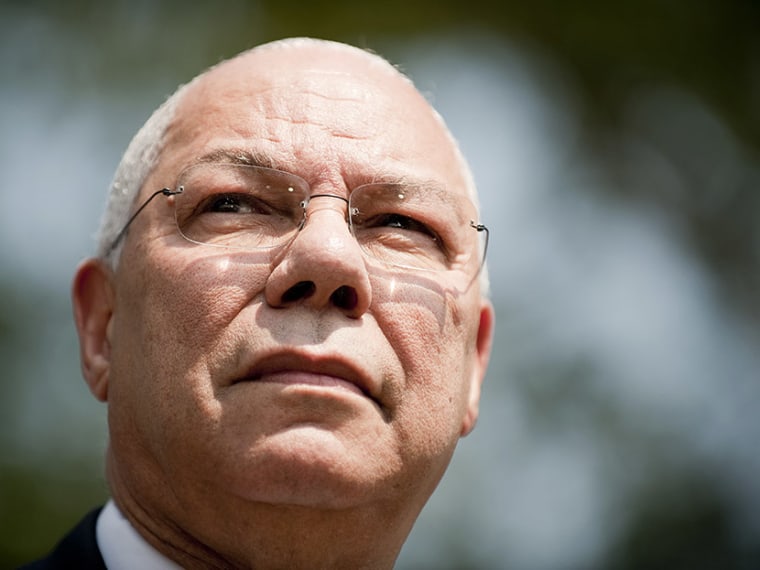Former Secretary of State Colin Powell blasted North Carolina's new restrictive voting law in a speech in Raleigh Thursday, warning it damages the Republican Party, "punishes minority voters and makes it more difficult for everyone to vote," according to a report from the Charlotte News Observer.
As Gov. Pat McCrory, the man who signed the sweeping bill into law earlier this month, sat in the audience, Powell lamented that the party will alienate voters it ought to court with restrictions like those found in the law.
"I want to see policies that encourage every American to vote, not make it more difficult to vote," Powell, a Republican, at the CEO Forum in Raleigh.
"It immediately turns off a voting block the Republican Party needs," Powell continued. "These kinds of actions do not build on the base. It just turns people away."
The new voting law has been subject to intense criticism from civil rights groups for it's many strict new changes which limit access to the polls, including a new voter ID requirement, a shortened early voting period, and the termination of a program that helped pre-register students within two years of their 18th birthday.
Thursday's remarks are not the first time in which Powell has criticized those within his own party for pushing away minority voters.
He took on voting laws specifically in January during an appearance on Bill O'Reilly's Fox News show.
“I object to putting in place additional levels of voter ID that disenfranchise those of our fellow citizens,” Powell said at the time. “I want to see a Republican Party that rather than trying to make it more difficult to vote, and restricting the number of days and hours you can vote, a Republican Party that says ‘we want everybody to vote, and we’re going to give you a reason to vote for us.’”
He blasted his party more broadly on race issues earlier that month during an appearance on Meet the Press, complaining the GOP suffered from what he described as a "dark vein of intolerance."
Arguing that some in his party seem to "look down on minorities," Powell pointed to former vice presidential candidate Sarah Palin’s use of the phrase “shuck and jive” and Mitt Romney surrogate John Sununu's use of the word "lazy" in reference to President Obama. He also criticized members of in his party for tolerating the “birther movement” as example of Republican bigotry, asking “Why do senior Republican leaders tolerate this kind of discussion within the party?”
Powell's latest remarks came the same day that a new report was released outlining the renewed voter suppression efforts happening in America as the 50th anniversary of the March on Washington approaches.
The report from the Advancement Project and Lawyers Committee on Civil Rights Under Law singles out North Carolina's new law for potentially having a disparate impact on African-American voters in the state, who make up 30% of those without ID according to the state's own data.
But North Carolina is far from the only state taking such measures. In the first half of 2013 -- before June's Supreme Court ruling gutted the Voting Rights Act --11 of the 15 states covered by that law introduced restrictive voting laws, and across the country, 36 states have introduced restrictive voting laws this year.
"The war on voting is not over," the report states.
Despite the "negative press" that they have received for pushing these measures, Gilda Daniels, University of Baltimore Law Professor and author of the report says that there is at this point there is no sign that those efforts will slow down. "With the recent loss of protections from Section 5 of the Voting Rights Act, we expect to see more [laws like these] in the coming months," she said.
